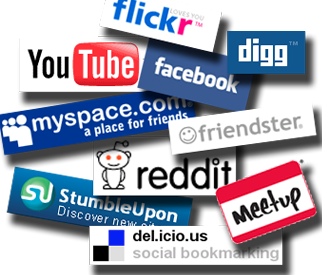 The buzz around social media training in Zimbabwe has definitely caught my attention. A combination of global organisations such as Web2forDev and Mercy Corps and local organisations such as; GetSocial and Techzim all have innovative social media training for people in Zimbabwe. Web2forDev is set to hold two workshops on social media at the National University of Science and Technology (NUST) in Bulawayo and Bindura Univerity of Science Education (BUSE) while a ‘start up weekend’ was held in Harare from the 16-18th of May 2014 and is continuing to run under a Global training calendar for 2014 and GetSocial also held social media training in early April in Harare.
The buzz around social media training in Zimbabwe has definitely caught my attention. A combination of global organisations such as Web2forDev and Mercy Corps and local organisations such as; GetSocial and Techzim all have innovative social media training for people in Zimbabwe. Web2forDev is set to hold two workshops on social media at the National University of Science and Technology (NUST) in Bulawayo and Bindura Univerity of Science Education (BUSE) while a ‘start up weekend’ was held in Harare from the 16-18th of May 2014 and is continuing to run under a Global training calendar for 2014 and GetSocial also held social media training in early April in Harare.
These workshops are focusing on social technological advancements for business people, events and activities for development across different institutes. They focus on various online platforms of communication such as Web 2.0, Webinars, Podcasts, Facebook, Twitter, Google, Flickr, Diigo, to mention just a few! Some workshops are open to those with social media interest, but others have a specific target audience such as journalists, policy makers and researchers, whose work can be collaborated with social media platforms for sustainable development. Notably, the Zimbabwean government through its Information Communication Technology Ministry came up with a strategic plan for 2010-2014 which is in support of this drive.
It is to a greater extent that the social media craze in Zimbabwe is helping to build our technological advancement, as seen through the e-Tech Africa expo 2014 (Zimbabwe) which is one of the many events on technology taking place here every year. These social media conferences are equipping Zimbabweans with more than just basic skills and knowledge on how to make themselves or their causes heard. Governments, national councils and corporations are also increasingly seeking to prove their accountability to the public via these sites. In many cases, these platforms have become a lobbying space for individuals to vent on behalf of communities and the nation at large. Of course, they are also a huge free advertising platform, with a global reach.
I caught up with Onai Petra Abote of The Source, an international business magazine by Reuters Zimbabwe, who attended the GetSocial training held here in Harare in April. She admitted that her experience during this workshop has enabled her to incorporate appropriate social media jargon and practical technological skills with economic business stories, which is increasingly becoming a basic necessity to her work portfolio. Tawanda Mudzonga, a local journalist interviewed Nigel Mugamu who is a mentor, founder and CEO of 263Chat to get an insight on “Start up Harare”. Nigel talked about how this innovative start-up has used the simplicity of Twitter to create dialogue every Tuesday all over the world about issues affecting Zimbabweans.
There are many factors driving this social media buzz in our country. Together, they seem to be working towards bridging the ICT gap. Certainly, the rapid increase in social media training and content is helping to raise the visibility of information shared online via visual images, text and videos. But whether technology is a becoming a pivotal catalyst for broader change in Zimbabwe depends on who has control over and access to the technology. Information shared is indeed knowledge gained: but whose information, and whose knowledge? What’s your take?

Leave a Reply